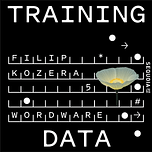Post methodology: Claude 3.7 via custom Dust assistant @TDep-SubstackPost with the system prompt: Please read the text of the podcast transcript in the prompt and write a short post that summarizes the main points and incorporates any recent news articles, substack posts or X posts that provide helpful context for the interview. Please make the post as concise as possible and avoid academic language or footnotes. please put any linked articles or tweets inline in the text. Please refer to Podcast guests by their first names after the initial mention. Light editing and reformatting for the Substack editor.In this episode, Filip Kozera, co-founder of Wordware, shared his vision for how AI development is being transformed through natural language programming. Kozera sees parallels between how Excel democratized data analytics in the 1980s and how Wordware aims to democratize AI development today.
"We have 30 million software engineers in the world, and we have 750 million active users of Excel," Kozera notes. "What Excel did in the '80s to data analytics and numbers is what we are trying to do to AI."
Wordware is building what Kozera calls an "AI Operating System" that allows anyone to create, iterate, and deploy AI agents using plain English rather than traditional programming languages. The platform balances the rigid structure of programming with the inherent fuzziness of natural language, enabling both technical and non-technical users to build sophisticated AI solutions.
Kozera rejects the "no-code" label for Wordware, explaining that their approach still incorporates programming concepts like loops, conditional statements, and function calls - just expressed in natural language. He envisions a future where "word artisans" use their creativity and domain expertise to craft AI solutions that preserve human taste and intent.
"English is the assembly language to LLMs," Kozera explains, "but you still have to structure it in the right way, and you still have to use some of the concepts even from typical programming."
Part of Wordware's success came from a strategic product launch that went viral. As Kozera detailed in a Substack post, the company first released a viral Twitter personality analysis tool built with their platform that attracted millions of users, then launched their main product at the peak of this virality.
Kozera believes that despite AI advancements, human creativity and taste will remain essential. "I want to save the human creative vision," he says. "I don't want everything to be AI."
As AI continues to transform how we work, Wordware's approach suggests that the future belongs not to those who can code in Python, but to those who can clearly express their creative vision through structured natural language.
Hosted by Sonya Huang
Mentioned in this episode:
Lovable: Generative AI app that builds UIs and web apps
Her: 2013 Spike Jonze film that Filip uses as an example of how voice will not be the best modality to express knowledge work.
Descript: AI video editing app that Filip uses a lot.
Granola: AI notetaking app Filip uses every day..
Gemini 2.0 Pro: Google’s newest long context model that can handle 6000 page pdfs.
Limitless pendant: Wearable device for collecting personal conversational context to drive AI experiences that Filip can’t wait for to ship.
DeepLearning.AI: Andrew Ng’s amazing resource for learning about AI
3Blue1Brown: Grant Sanderson’s incredible channel on YouTube that explains math and AI visually.












Share this post